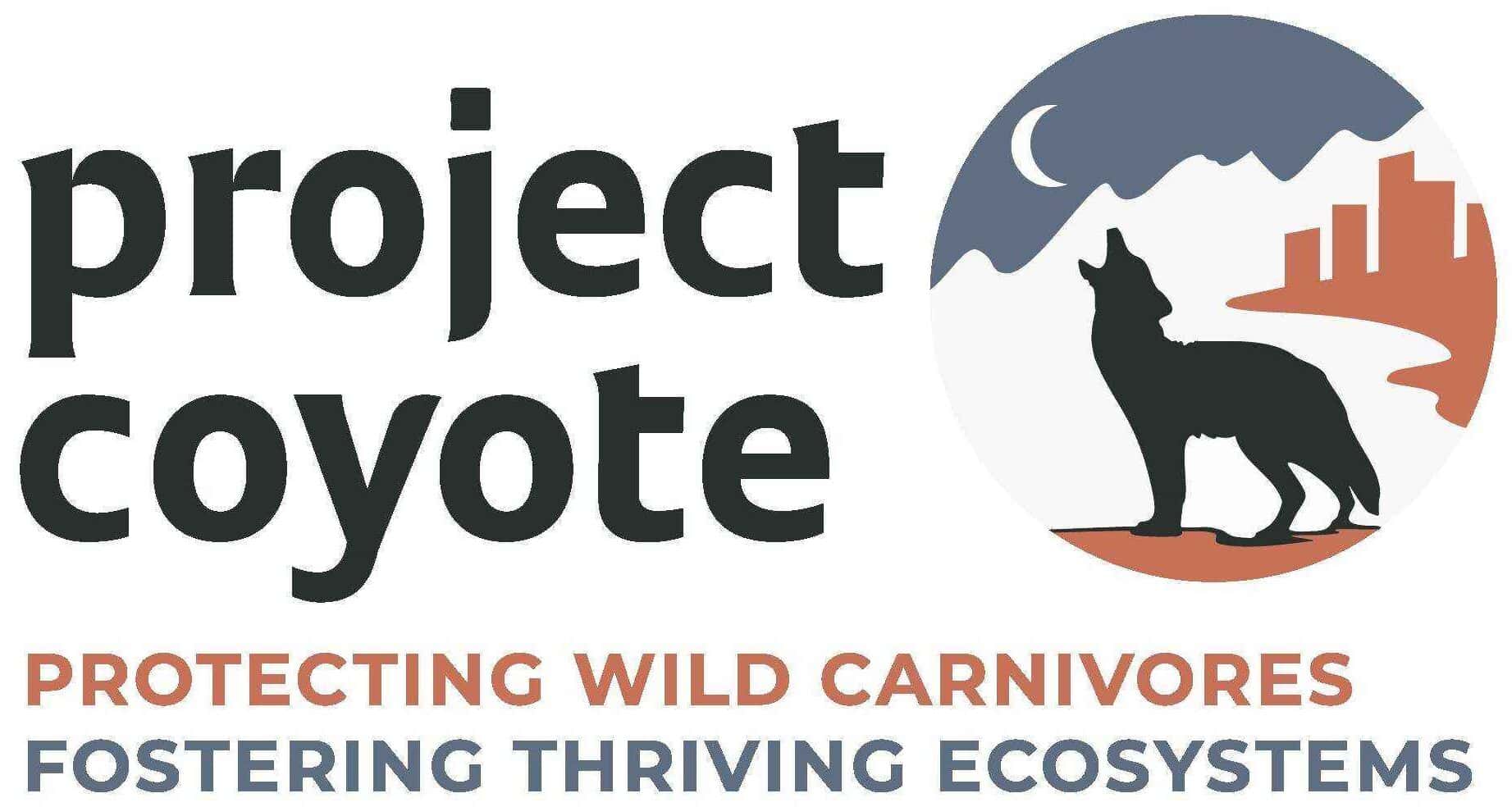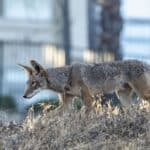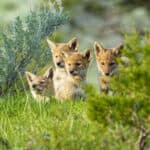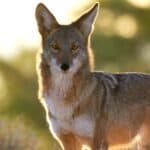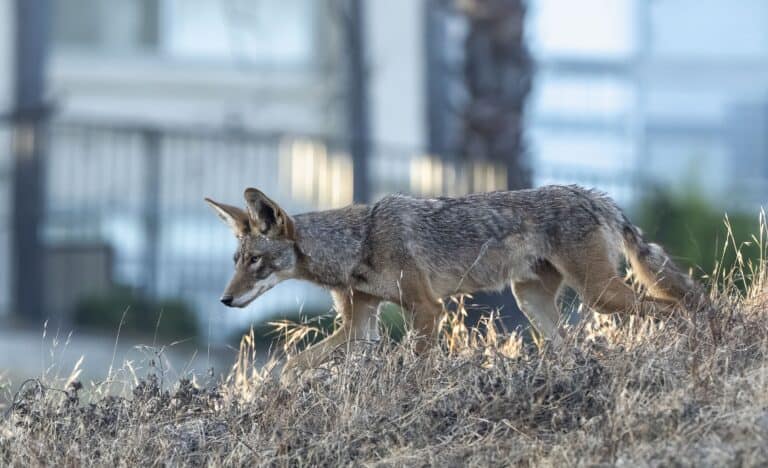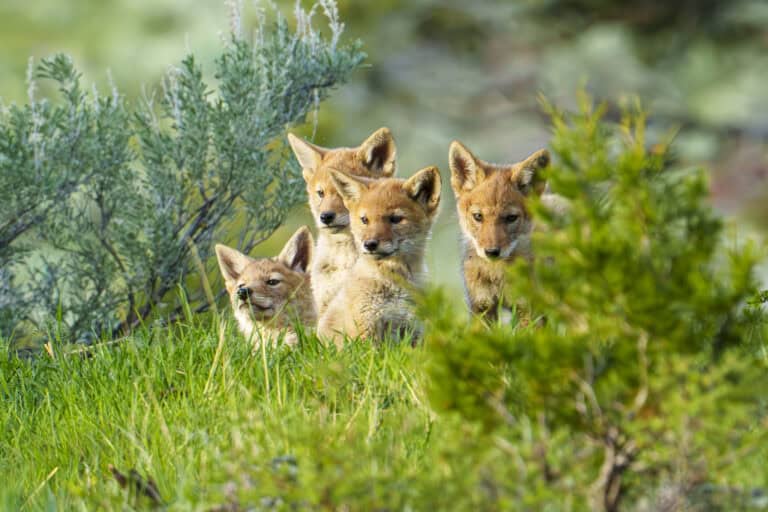FOR IMMEDIATE RELEASE – November 21, 2023
Media Contacts: info@projectcoyote.org, 415.326.4110
Wildlife Services failures have been extensively documented for decades, yet the program has refused to substantially change its practices
WASHINGTON D.C. — Today, the Animal Legal Defense Fund, Center for Biological Diversity, Project Coyote, the Animal Welfare Institute, and WildEarth Guardians submitted a petition for rulemaking to the U.S. Department of Agriculture’s (USDA) Animal and Plant Health Inspection Service (APHIS) urging the agency to adopt a comprehensive regulatory framework to govern its Wildlife Services program. Wildlife Services is a century-old, highly controversial, and secretive animal “damage control” program that is administered by APHIS.
The petitioning organizations now urge Wildlife Services to phase out unnecessary, ecologically damaging, and inhumane methods of killing wild animals. This would include prohibiting specific cruel and indiscrciminate methods, such as neck snares, M-44 cyanide bombs, lead ammunition, and more; and ban operations in wilderness areas. The petitioners further request clear standards to ensure Wildlife Services treats animals humanely and operates with greater transparency and accountability to the public. In 2013, APHIS denied a similar petition for rulemaking filed by these same animal protection groups without substantively addressing the concerns raised and the numerous scientific studies cited.
Wildlife Services traps, snares, poisons, and shoots millions of animals every year in the U.S., primarily on behalf of the animal agriculture industry, as well as pro-hunting interests. Between 2010 and 2022, the program killed over 37.4 million native animals, including coyotes, foxes, mountain lions, beavers, and many species of birds. Wildlife Services also unintentionally kills non-target animals, including companion animals and imperiled species, such as eagles, falcons, condors, wolves, grizzly bears, and many more. Killing such a large number of animals has contributed to the local extinction of many North American species, and has fundamentally altered ecosystems at the local, regional, and continental levels.
“The USDA Wildlife Services program has failed to integrate the best available science and shifting public attitudes toward wildlife; instead they continue to emphasize lethal, cruel and often indiscriminate killing methods for addressing livestock-wildlife conflicts,” says Camilla Fox, founder and executive director of Project Coyote. “This federal agency has an opportunity — and a public duty — to bring its program into the 21st century by shifting its focus to humane, ecologically sound, science-based nonlethal conflict mitigation policies and practices.”
“Wildlife Services uses destructive and dangerous methods to kill millions of native wildlife populations, placing the public at risk, on behalf of animal agriculture and industry interests,” says Animal Legal Defense Fund Managing Attorney Daniel Waltz. “The agency is operating in secret without a concrete legal framework to hold them accountable for the animals’ deaths and destroying ecosystems while keeping the public in the dark.”
“For decades, Wildlife Services has relied on cruel and indiscriminate methods of killing wildlife that pose a risk to people, companion animals, and non-target species, including threatened and endangered species,” says Johanna Hamburger, director and senior attorney for the terrestrial wildlife program at the Animal Welfare Institute. “Neck snares, steel-jawed leghold traps, body-crushing traps, and various chemicals like sodium cyanide cause immense suffering. These inhumane and irresponsible methods must be prohibited.”
“Experience shows that traps and guns aren’t long-term solutions to conflicts with wildlife,” says Collette Adkins, carnivore conservation director at the Center for Biological Diversity. “Wildlife Services has the tools and expertise needed to promote wildlife coexistence instead of killing. We’re hopeful that the agency will finally adopt new rules that rely on effective, nonlethal methods as the primary solution to wildlife conflicts.”
“Wildlife Services must finally abandon its outdated practices and instead rely on ethical, science-based conflict resolution methods — an evolution we hope to see as a result of this petition,” says Lizzy Pennock, carnivore coexistence attorney at WildEarth Guardians. “The changes we seek are long overdue, and until they occur, neither the public nor the wildlife we cherish are safe from this killing program.”
